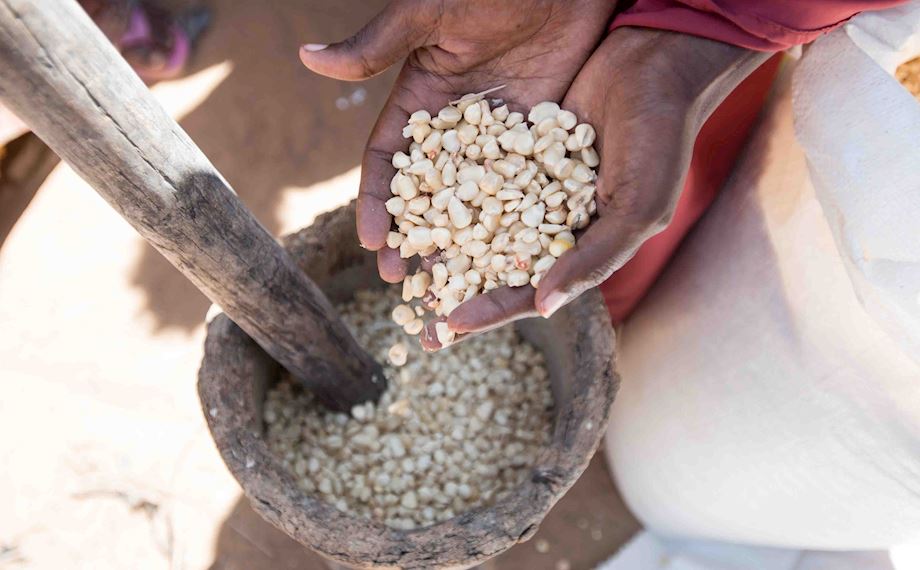The Rules for Calculating and Paying Your Zakat

Working out how much Zakat to pay and how to pay it can be sometimes difficult and for that reason, we have created this short guide. We've broken down some of the most common questions��and cleared up the main misconceptions about��Zakat.
While you're here, you can also use our Zakat calculator��or read our Zakat policy.
What is Zakat and why is it important to me?
'You shall observe the Salah and give the obligatory charity (Zakat), and bow down with those who bow down.' (Qur’an 2:43)
Zakat is the third pillar of Islam. It is an obligatory act of charity amounting to 2.5% of a Muslim's��annual savings. Zakat is intended to purify our wealth, not only physically, but also spiritually. It purifies our heart against selfishness as well as ensuring that society's poorest are protected against hunger and destitution.��
A common misconception is that Zakat is a form of tax. However, it is a spiritual obligation in which we will be accountable to Allah directly. Zakat plays a key role in supporting the poorest in the community, through providing them with essential aid as well as helping them come out of a life of poverty.��
Who has to pay Zakat?
You must pay Zakat if, firstly, you are an adult Muslim of sound mind, and secondly, you have possessed the minimum amount of wealth (known as Nisab) for one lunar year.
Nisab must be maintained for one lunar year for Zakat to be required and must be paid as soon as it is due. Your Zakat year therefore starts on the date your wealth first equalled or exceeded the Nisab and should be calculated on that date for each subsequent year.
How much Zakat do I need to pay?
Our Prophet Muhammed (saw) has set Nisab at the rate equivalent to 87.5 grams of gold or 612.4 grams of silver. Today, this is usually the equivalent value in your local currency. In the Hanafi madhab, the value of silver is used to determine the Nisab eligibility to pay Zakat. In other madhabs, the value of gold is used. The value of gold and silver changes daily, so your Zakat payment will vary a little each year. You can use our Zakat calculator to work out this year's Zakat.
What do I need to pay Zakat on?
Zakat should be paid on wealth rather than income. If we take the example of Adam (our fictional character) who earns £20,000 a year and has £200 pounds as part of his yearly savings, Adam would have to calculate his Zakat from the £200 in his savings as opposed to his yearly income.
Zakat is not just paid on the savings in your bank account. You need to pay Zakat on other types of wealth, such as:
- Gold and silver
- Cash held at home or in bank accounts
- Stocks and shares owned either directly or through investment funds
- Money lent to others
- Business stock in trade and merchandise
- Agricultural produce
- Livestock animals such as cows, goats and sheep
- Pensions
- Property owned for investment purposes
A commonly asked question is whether women need to pay Zakat on their gold and silver jewellery. There is a difference of opinion on this:
- Some scholars state you need to pay Zakat on����������gold and silver (above the Nisab level), including jewellery.��However, you don't have to pay Zakat on other precious metals like platinum, nor on precious stones like diamonds. Moreover, some scholars say that mixed metals are only liable to Zakat if half or more of the metal is gold or silver.
- Other scholars say if women are only using that jewellery for personal ornamentation, and it is��not used as an asset, then you don't have to pay Zakat on it.
- If you are buying jewellery for the purpose of accumulating wealth or selling it later, or if you have what would generally be considered an extravagant amount, then that jewellery is no longer mere ornamentation, and you need to pay Zakat on it.��
Another commonly asked question is whether Zakat needs to be paid on valuable items such as property or cars. The answer is: no, these items are exempt. However, if you intend to sell these items then it becomes a trading good and Zakat will be due on such items��if a lunar year passes from the time of your intention to sell.
How do I��calculate how much Zakat I need��to pay?
We know that calculating your Zakat can be a daunting task if you don’t know how to go about the process correctly. There are so many variables to consider so we’ve devised a simple �ܲ��첹�������������ܱ����ٴǰ���to help you calculate what you're due to pay.
Can I pay my Zakat monthly?
If it is easier, you can spread out your Zakat payments over the whole year.��Calculate how much Zakat is due on you that year, and divide it into amounts�� twelve. At the end of the year, check your estimated calculation - if you underestimated the amount of Zakat you needed to pay, make sure you pay it off before the new year begins.
Should I be paying my missed Zakat?
It can be easy to forget to pay��or to miscalculate our Zakat or we may even be new to recognising this pillar of Islam. However, it’s never too late to pay off our Zakat from previous years. Missed Zakat would be calculated in the same way you calculate your current Zakat - however, you would use the Nisab from the missed Zakat year, as opposed to the current Nisab value.
What should Zakat be spent on?
There are seven types of people who can receive Zakat: the poor, the needy, those in debt, those in the cause of Allah, recent reverts to Islam, those distributing Zakat, wayfarers, and those in captivity. (The Noble Qur'an, 9:60)
When giving with SM�ؿ�, you can be sure your Zakat will be used to support disadvantaged communities in the fight against poverty. It can be used towards improving education, the environment, health, food security and more.��
I still have questions about Zakat
If you still have questions about paying your Zakat, or our Zakat-eligible projects, please give us a call at��0115 911 7222. Our team are happy to help you out.
SM�ؿ� is an award-winning charity, established in 1993 to help those needing emergency relief and tackling the root causes of poverty.��
��


















